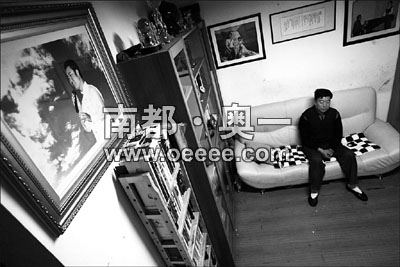Heroic donor's family struggles for hard life
By Jessie Tao (chinadaily.com.cn)Updated: 2006-12-26 11:03
Cong Fei, a well-known philanthropist-cum-singer in Shenzhen, would never have expected the economic problems his parents, both in their 70s, have to face after his death at 37.
|
|
For more than ten years, Cong devoted himself to charity work as a popular singer, supporting 178 poor students and disabled people using nearly all of his nearly three million yuan (US$375,000) earnings from commercial performances He lost his year-long battle with stomach cancer on April 20, 2006 at 37. Even after death, he helped others by donating his corneas.
In February, Cong was named a person who moved the whole nation in 2005 in a special national program organized by China Central Television (CCTV).
Cong's parents, who now live with Cong's young daughter, only eat two meals a day, and cannot afford to pay the bills. They can't even afford to see a doctor when they don't feel good, the report said.
|
|
Zhang told the paper he and his wife have a monthly pension of 1500 yuan, which is enough to support them in their hometown in northeast China, but in Shenzhen, they often feel economically strained.
"Though Rui Rui's (Cong's eldest daughter) school waived her tuition fee, we still have to spend 1,000 yuan (US$125) on her food and clothing every month, and if she falls ill, our pension is far from adequate," Zhang told the paper.
He added that Cong's mother has been feeling pain in her liver, but refuses to see a doctor, fearing a visit to the hospital would "waste money."
In spite of their difficult life, the couple is still reluctant to ask for help from the government, which they said has done a lot for them since their son's death, such as paying their 2,700 yuan (US$337.5) apartment rent and giving them a 300-yuan life allowance (US$37.5) for Rui Rui, their granddaughter.
"There were also many kind people who frequently came to see us. We really feel grateful to them." Zhang said.
Cases of young men dying heroic deaths, leaving nobody to care for their elderly parents and young children have been on the rise in recent years.
On February 20, 2005, Li Xuesheng, a migrant worker in Wenzhou, east China's Zhejiang Province, threw himself in front of a train trying to rescue a little girl who was playing on the tracks. He died at 37, leaving behind his senile father and 11 year-old daughter. There have been reports of similar difficulties for Li's family.
This raises the question of who should care for these heroes' families.
As Cong's father said, these families already receive enough money from the government and society, so when life gets difficult, they feel they have no one to turn to.
An online poll conducted by Shenzhen-based website www.oeeee.com on the issue shows half of the 7,950 respondents thought the government should make relevant policies and launch special funds to help the bereft families, while 17.91 percent thought the heroes' families should be treated the same as the ordinary people and live on their own. Only 8.27 percent agreed with public donations.
According to the survey, 13.78 percent thought large companies, magnates and charitable agencies should help care for the families, and 14.96 percent thought those people the heroes helped should help care for the families.
| ||
|
||
|
||
|
|


